Blockade

Brief Synopsis
Cast & Crew
William Dieterle
Madeleine Carroll
Henry Fonda
Leo Carrillo
John Halliday
Reginald Denny
Film Details
Technical Specs

Synopsis
In Spain, in the spring of 1936, farmer Marco, who is devoted to his land, looks forward to the day he will be able to buy a tractor. When a woman named Norma, who is on the way to Castelmare, crashes her expensive car near Marco and his friend Luis, they tow her there with their cattle. Norma is going to meet her father Basil, an art and antiques dealer. Though Marco is a simple farmer, he has learned poetry and admires beauty such as Norma's. Norma is also attracted to Marco, but the differences in their lives makes a romantic relationship impossible, even though Norma yearns for Marco's simple life. Returning from Castelmare, Marco and Luis hear guns in the background, signalling the beginning of a war. While Norma, Basil and his associate, Andre, try to drive out of the war zone, Marco emotionally urges his neighbors to fight for their land rather than give it up. They take his advice and resist, and as a reward for his bravery in organizing the fight, Marco is made a lieutenant in the army of resistance. Some time later, in a tavern, Marco encounters Basil dressed as a peasant, but wearing expensive shoes, and is suspicious, unaware that he is Norma's father. Basil is a secret agent, and when Marco follows him home, Basil shoots at him, but is killed by Marco in self-defense. When Norma returns home, she is shocked that Marco has killed her father and doesn't believe that Marco will help her at her interrogation. During an air raid, Marco takes her to shelter and they are trapped until Luis digs them out the next morning. Norma then disappears until Andre finds her at the headquarters of General Vallejo, who lets her go. Andre, who is working for the opposition but is friendly with Vallejo, asks her to work for him. Although she does not want to, he makes her realize that she will be killed without his protection, and if she cooperates, he will help her leave the country. He sends her back to Castelmare, and on the train she encounters Marco, who pretends that he does not care what she is doing, but warns her to be careful. On the train, Norma also meets Eddie, an English journalist who is writing about the war. Eddie is a kind man who tells Norma about the enemy blockade and its effect on the people of Castelmare. Weeks later, knowing that Castelmare is crippled by lack of food and supplies, Norma feels increasingly guilty about her part in the blockade. After Eddie walks with her through the starving city, she breaks down from the strain and runs to Marco to confess her crimes. Marco lets her go so that she can convince the others that the plans have been altered, then has their headquarters raided because he does not believe that she will help him. When he arrives, however, he finds that she was planning to help him, but is now angered by his distrust. Soon a supply ship is fired upon, and as the starving people of the town watch, the ship slowly sinks into the sea. When Vallejo arrives at Castelmare, Marco requests leniency for Norma, but she asks Vallejo only to let her help the people she has hurt. She names Andre as a spy, then discovers that Vallejo has secretly been working with Andre all along. Andre reveals that he caused Basil to be caught, and tells her that she must help him again. Just then, Marco tells Vallejo that the sunken ship was a decoy and shows Vallejo that the real supply ship is coming. By Vallejo's reaction, Marco realizes the truth about him, and after Norma grabs Andre's gun in another room and shoots him, she and Marco both become Vallejo's prisoners. As the people cheer for the real relief ship, Marco and Norma are taken to the commandant for punishment, but he believes them and has Vallejo arrested. The commandant offers Marco and Norma their freedom and the chance to find peace elsewhere, but Marco knows that they can have no peace, and knowing that the world can stop the fighting, he asks, "where's the conscience of the world?"

Director
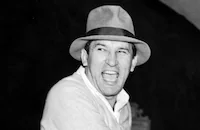
William Dieterle
Cast

Madeleine Carroll

Henry Fonda

Leo Carrillo

John Halliday
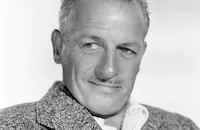
Reginald Denny

Vladimir Sokoloff
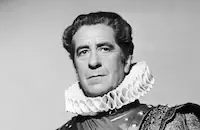
Robert Warwick
Fred Kohler Sr.
Carlos De Valdez

Peter Godfrey
Nick Thompson
Rosina Galli
Wm. B. Davidson
Lupita Tovar

Katherine Demille
George Byron
Ramon Ros
Dolores Duran
Guy D' Ennery
Edward Brady
Murdock Macquarrie
Harry Semels
Baby Maria De La Paz
Demetris Emanuel
Hugh Prosser
Arthur Aylesworth
George Lloyd
Allan Garcia
Herbert Heywood
Roger Drake
Paul Bradley
Carl Stockdale
"skins" Miller
Evelyn Selbie
Mary Fox
Belle Mitchell
Cecil Weston
Ricca Allen
Crew
James Basevi
Robert Coburn
John Frederics
Peter Godfrey
Ali Hubert
Irene
Werner Janssen
Dan Keefe
Charles Kerr
Don Keyes
John Howard Lawson
Russell Lawson
Otho Lovering
Frank Maher
Rudolph Maté
Boris Morros
Ann Ronell
Wade Rubottom
Dorothy Spencer
Irvin Talbot
Alexander Toluboff
Walter Wanger
Kurt Weill

Videos
Movie Clip

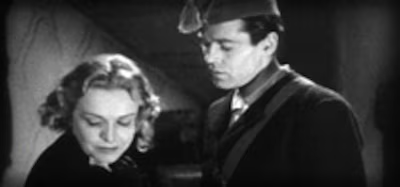
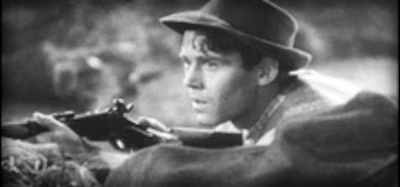
Film Details
Technical Specs

Award Nominations
Best Music Original Dramatic Score
Best Writing, Screenplay
Articles
Blockade
Indeed, most of the critical knocks against Blockade were that it didn't even identify the sides. The enemy is never actually named in the film, and many critics and observers complained that the story was far too mild to be worth all the controversy. Variety, for instance, called it "distinctive, different and provocative... but misses any claim to greatness because it pulls its punches....Occasional flashes of anger against the stupidity of war [but] doesn't stay mad enough to arouse audience indignation." And The New York Times was equally blasé: "Mr. Wanger's film of Spain, with its temperate appeal to the conscience of the world to stop the bombing of civilian populations, seems to be mild enough a protest against wholesale murder."
Blockade's plot follows a peasant farmer (Henry Fonda) who loses his land and joins the Loyalist forces in their fight against Franco's army, eventually becoming involved with a beautiful woman (Madeleine Carroll) who turns out to be a spy. Since the United States government had not taken sides in the conflict, none of the Hollywood studios were interested in producing Blockade, for fear of offending sensitivities on either side. But independent producer Walter Wanger had the passion and the freedom to take it on, not to mention the ability to enlist top technicians (such as director William Dieterle and cinematographer Rudolph Mate) and top actors. The film was released through United Artists and turned a small profit. Even Wanger, however, had to struggle to even get some degree of moral outrage up on the screen; despite his above-quoted response to Franco, he had already softened the film from his original vision.
Hollywood may not have produced the film but it did take notice of it, rewarding it with two Oscar® nominations -- for Best Original Story and Best Original Score. It lost to Boys Town (1938) and The Adventures of Robin Hood (1938), respectively.
Time has been kinder to Blockade. Respected film historian William K. Everson defended the picture, calling it in his 1985 New School program notes "one of THE most maligned films of the later thirties, especially as it was made at a time when pressure groups were rampant, the Production Code was imposing stifling restrictions, and Hollywood was geared to turning out escapism rather than 'serious' films."
Addressing the vagueness of the warring sides in the movie, Everson wrote, "Its failure to identify the two sides in the conflict does possibly make the film a trifle confusing at times today. But not so in 1938: since it was considered a major testing ground for fascism, the Spanish Civil War was covered extensively not only for its news value but also in political editorials. Even without television, people were well-informed about the issues of the war at the time, and could bring that knowledge to the film with them.
"The remarkable thing is that is was MADE: by a producer frequently willing to tackle controversial material, by a director of considerable prestige, and clearly with the intent of arousing outrage on the part of the viewers. It has been most maligned by latter-day critics who look back not realizing the difficulties of the times in which it was made, and also have a convenient political scapegoat in [screenwriter] John Howard Lawson, later identified as one of Hollywood's foremost Communist writers... However, Fonda's final direct appeal to the audience is an emotional one, an appeal for reason and help. It is certainly not a political let alone a Communist statement; yet that scene...is largely responsible for the film (in later years) being cited as an example of insidious propaganda!"
Everson also noted that the film's plot is "a direct descendant of both Pabst's silent The Love of Jeanne Ney (1927) and Lewis Milestone's The General Died at Dawn (1936), with the links reinforced by the presence of Vladimir Sokoloff in two of the three films, and by Madeleine Carroll playing virtually the same role in the two American films."
Madeleine Carroll, incidentally, owed much to Walter Wanger for resuscitating and even guiding her Hollywood career. Carroll had first come to America from the U.K. in 1934, acting in John Ford's The World Moves On (1934), but as Wanger told a newspaper in 1936, she "hadn't remained long enough to find her proper place. Knowing she was unhappy about what she found here, but assured that she was a cultured and beautiful woman, and possessed splendid diction and well above the average amount of acting talent, I went to England and persuaded her to give Hollywood another chance." By that point, she had starred in the sensational Hitchcock classic The 39 Steps (1935). Wanger brought her back and cast her in The Case Against Mrs. Ames (1936), and then good roles followed in such films as The General Died at Dawn and The Prisoner of Zenda (1937).
Producer: Walter Wanger
Director: William Dieterle
Screenplay: John Howard Lawson (writer); James M. Cain (additional dialogue); Clifford Odets (uncredited)
Cinematography: Rudolph Mate
Art Direction: Alexander Toluboff
Music: Werner Janssen
Film Editing: Walter Reynolds, Dorothy Spencer
Cast: Madeleine Carroll (Norma), Henry Fonda (Marco), Leo Carrillo (Luis), John Halliday (Andre Gallinet), Vladimir Sokoloff (Basil, Norma's Father), Robert Warwick (General Vallejo), Reginald Denny (Edward Grant), Peter Godfrey (Magician), William B. Davidson (Commandant), Katherine DeMille (Cabaret Girl).
BW-85m.
by Jeremy Arnold

Blockade
Blockade
Marco (Henry Fonda) is a simple farmer driven from his land by troops of invading soldiers, presumably belonging to Nationalist general Francisco Franco. After giving an impassioned plea declaring the need for freedom from tyranny, Marco's fellow peasants soon follow him as their leader. Marco becomes a member of the anti-Franco Loyalist forces, and his strong words and fierce beliefs allow him to rise through the ranks and become a key member of the struggle. While stationed in a city under blockade, Marco becomes enamored with Norma (Madeleine Carroll), who serves as a compromised spy for Franco forces, her sympathies laying less with Franco policies than for the safety of her family, who live in an occupied territory. Despite their differences, Norma finds herself swayed by Marco's impassioned call to stop the murder of the innocent people of Spain.
Wanger was widely criticized for making a seemingly reckless venture, given the uncertain political climate and the unlikely commercial prospects of the picture. And indeed, the story, written by John Howard Lawson, was crippled by concessions and contradictions for commercial viability in America and in Europe, making the film too ambiguous. Marco's sympathies, for example, are unclear since Spanish landowners almost all sided with Franco. And as Matthew Bernstein points out in his biography Walter Wanger: Hollywood Independent, the scenes showing Loyalist women praying for relief from the Franco-enforced food blockade were highly inaccurate, given the fact that the Loyalists discouraged and punished religious expression.
Despite its artistic and commercial foibles, Blockade can now be appreciated as a noble failure and it's certainly indicative of pre-World War II Hollywood's hesitation in speaking up for something higher than itself. Moreover, it proves the importance of independent producers like Wanger, who would soon lose their powerful voice in Hollywood after the fall of the studio system in the postwar era.
For more information about Blockade, visit the distributor's web site at Image Entertainment, Inc.. To purchase Blockade, visit TCM's online store.
by Scott McGee
Blockade
Quotes
Where is the conscience of the world?- Marco
Trivia
Disclaimer on film and connected paper - Note: Care has been taken to prevent any costume of the production from being accurately that of either side in the Spanish civil war. The story does not attempt to favor any cause in the present conflict,
Notes
Pre-production titles of the film included The River Is Blue, Castles in Spain and The Loves of Jeanne Ney. Other titles by which the film was known during production, but prior to release, included The Rising Tide and The Adventuress. According to news items in Hollywood Reporter in late February and early March 1937, the production was scheduled to begin filming as The River Is Blue in late Feb, under Lewis Milestone's direction, based on a script by noted playwright Clifford Odets. The items mentioned that a male lead had not been cast opposite Madeleine Carroll, but that Milestone was testing actors Willy Costello, Alan Marshall and Elia Kazan. Finally, on 4 Mar, a news item announced that the production was being postponed and the sets were to be struck. Filming under William Dieterle's direction did not begin until almost a year later, on February 16, 1938, with Henry Fonda as the male lead. All sources after 1937 only credit John Howard Lawson with original screenplay, and it appears that Odets' script was abandoned before the 1938 production began.
Portions of the film were shot on location in Brent's Craig, CA. Just prior to the release of the film, NBC radio broadcast a program featuring the musical score, accompanied by a voice over narration by Fonda and Carroll providing explanatory background on the film. Although the setting of the film is established as Spain in the spring of 1936 by a title card appearing on screen after the opening credits, no specific mention is made in the film of the Spanish Civil War, or of the two opposing sides, the Loyalists and the Fascists. The "enemy" to the character Marco's people is never named and the action and dialogue of the film vaguely infer a foreign invasion rather than a civil war. At the end of the film, Fonda delivers his last few lines, including the question "Where's the conscience of the world?" directly to the audience. The review in Variety criticized Lawson for not making his script more explicit, but according to contemporary news items and information contained in the file on the film in the MPAA/PCA Collection at the AMPAS Library, the Hays Office refused to allow references to the actual combatants in Lawson's original script, entitled Castles in Spain, to remain in the released film.
Other information in the file and contemporary news items document protests throughout the United States against the film. Various groups, including the Roman Catholic men's organization, The Knights of Columbus, accused the filmmakers of leftist sympathies. The Knights of Columbus Bulletin of 1938 said that the "director has ambition to glorify Karl Marx." In Boston, groups of protesting Catholics sought to have the film banned, but the mayor refused to comply and the film remained on exhibition. Pickets also protested the film at its Radio City Music Hall showing in New York. Editorials in several newspapers and magazines argued the political merits of the film. Box Office condemned the Knights of Columbus campaign to have the film banned and in the publication Hollywood Now: A Journal in Defense of American Democracy, director John Ford praised the film saying, "I am not going to speak as a Catholic, nor as a member of the Knights of Columbus for twenty years, nor in the name of Francis Ford, my nephew in the Abraham Lincoln Battalion in Spain, nor as a member of the Screen Directors Guild, but as a private citizen...Great entertainment...great human document." A decade after Blockade was released, screenwriter Lawson was sentenced to a year in prison for refusing to testify before the House Un-American Activities Committee. He was one of the "Hollywood Ten," a group of filmmakers who refused to reveal information about alleged Communist affiliations of themselves or others.
Blockade received Academy Award nominations in the Music (Original Score) and Writing (Original Story) categories.

Miscellaneous Notes
Released in United States 1938
Released in United States 1938













